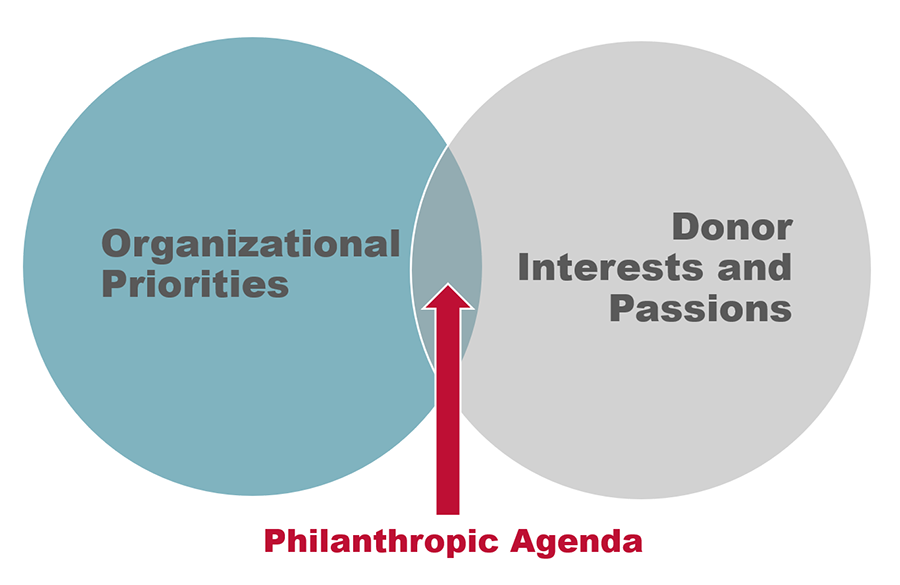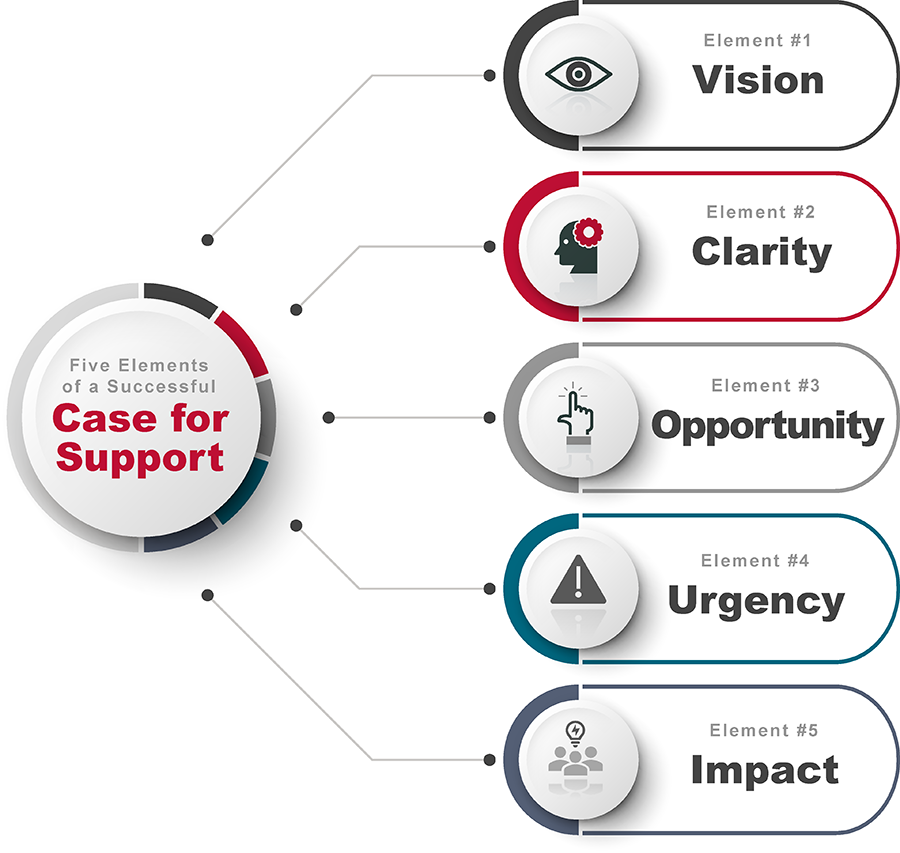For any organization considering a major fundraising campaign, developing a strong case for support—“philanthropic agenda”—is critical to the campaign’s success. There is rarely a shortage of good and worthy ideas which, if funded, can advance the mission of an organization, and maybe even affect transformational change. The trick is to select those ideas that are not only priorities of the institution, but also can move the hearts and minds of prospective donors and inspire them to action. Today’s donors are sophisticated investors (many of whom have evolved from responding primarily to general unrestricted requests to strategically supporting initiatives that tackle the world’s problems) and demand to know the positive outcomes you expect to achieve as a result of their philanthropic support.
Successful fundraising is dependent in part on your ability to identify the intersection between organizational priorities and donor interests and passions. In fact, fundraising priorities (i.e., the philanthropic agenda) lie at this intersection:

A successful case for support should:
- Include well-defined projects with understandable impact.
- Consist of projects that are aligned with a strategic plan and direction.
- Propose projects that intersect with donor interests.
- Articulate compelling reasons for donor support.
- Demonstrate a sense of urgency and why the organization is ideally positioned to act.
We recommend including the following elements to make your case for support as illuminating and inspiring as possible.
Vision
Donors want to support a winning organization—one that has a strategic vision coupled with strong, capable leadership with the will to turn the vision into reality. An effective and compelling philanthropic agenda will outline your organization’s vision and paint a picture about how donors’ support can enable your leadership to realize their vision.
Clarity
Once the vision is established, your case must clearly articulate to prospective donors exactly what you are trying to achieve—in precise, measurable terms and focused on a few key areas. Avoid trying to be all things to all people.
Opportunity
Frame the campaign goals as investment opportunities for prospective major donors. Describe the problems you have identified that philanthropic support can help solve and how your organization is uniquely positioned to address these particular problems.
Urgency
Explain for donors, in very specific terms, why it is urgent that they consider supporting the campaign goals and opportunities at this time. Describe what will happen if an unprecedented donor response is received and, just as importantly, what will happen if the campaign goal is missed.
Impact
Your organization must connect with the hearts and minds of your donors. Making your donors believe that their gifts can and will make a difference can elevate the issue to one of societal importance, rather than just being important to your organization. Demonstrating the impact to prospective donors, as clearly as possible, is critical to articulating a strong case.

While your case will be uniquely tailored to your organization, keeping these elements in mind when developing your case for support can help make it as successful as possible. After all, your case should set forth a bold vision for a better future that inspires donors to get caught up in that vision.
Contact BWF today to discuss how we can partner with you to develop a philanthropic agenda for your organization that demonstrates the vision, clarity, opportunity, urgency, and impact required for a successful campaign.




